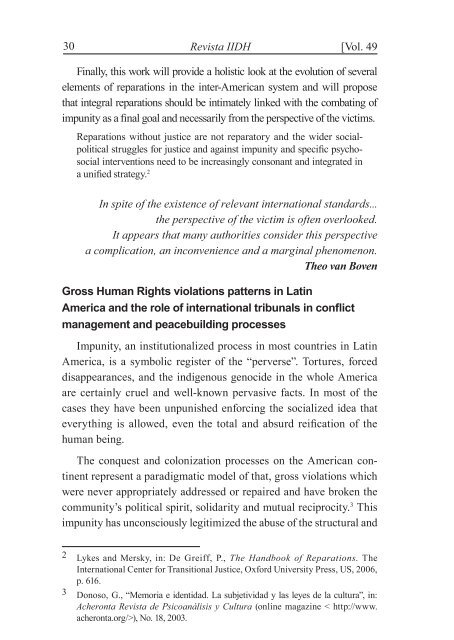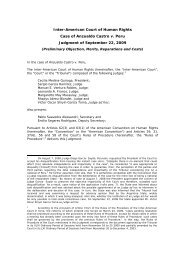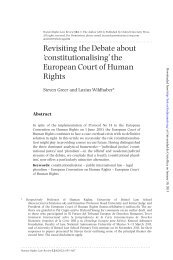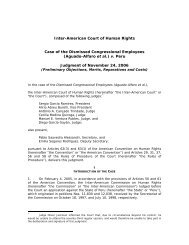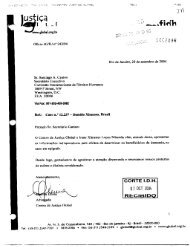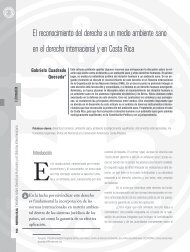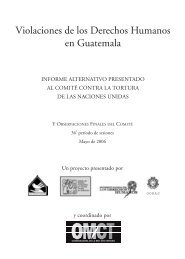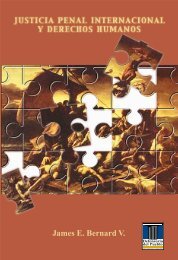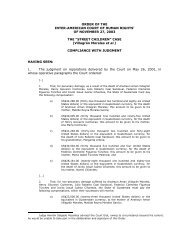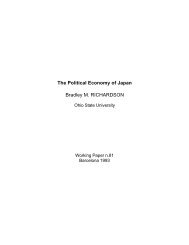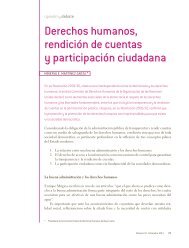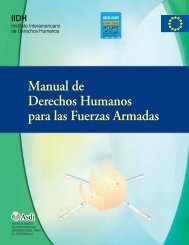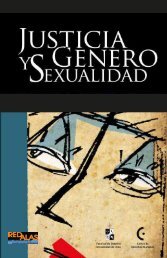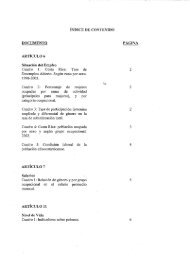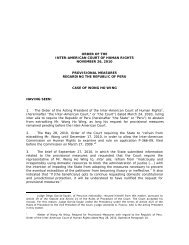Inter-American Court of Human Rights' reparation judgments ...
Inter-American Court of Human Rights' reparation judgments ...
Inter-American Court of Human Rights' reparation judgments ...
- No tags were found...
You also want an ePaper? Increase the reach of your titles
YUMPU automatically turns print PDFs into web optimized ePapers that Google loves.
30 Revista IIDH[Vol. 49Finally, this work will provide a holistic look at the evolution <strong>of</strong> severalelements <strong>of</strong> <strong>reparation</strong>s in the inter-<strong>American</strong> system and will proposethat integral <strong>reparation</strong>s should be intimately linked with the combating <strong>of</strong>impunity as a final goal and necessarily from the perspective <strong>of</strong> the victims.Reparations without justice are not reparatory and the wider socialpoliticalstruggles for justice and against impunity and specific psychosocialinterventions need to be increasingly consonant and integrated ina unified strategy. 2In spite <strong>of</strong> the existence <strong>of</strong> relevant international standards...the perspective <strong>of</strong> the victim is <strong>of</strong>ten overlooked.It appears that many authorities consider this perspectivea complication, an inconvenience and a marginal phenomenon.Theo van BovenGross <strong>Human</strong> Rights violations patterns in LatinAmerica and the role <strong>of</strong> international tribunals in conflictmanagement and peacebuilding processesImpunity, an institutionalized process in most countries in LatinAmerica, is a symbolic register <strong>of</strong> the “perverse”. Tortures, forceddisappearances, and the indigenous genocide in the whole Americaare certainly cruel and well-known pervasive facts. In most <strong>of</strong> thecases they have been unpunished enforcing the socialized idea thateverything is allowed, even the total and absurd reification <strong>of</strong> thehuman being.The conquest and colonization processes on the <strong>American</strong> continentrepresent a paradigmatic model <strong>of</strong> that, gross violations whichwere never appropriately addressed or repaired and have broken thecommunity’s political spirit, solidarity and mutual reciprocity. 3 Thisimpunity has unconsciously legitimized the abuse <strong>of</strong> the structural and2 Lykes and Mersky, in: De Greiff, P., The Handbook <strong>of</strong> Reparations. The<strong>Inter</strong>national Center for Transitional Justice, Oxford University Press, US, 2006,p. 616.3 Donoso, G., “Memoria e identidad. La subjetividad y las leyes de la cultura”, in:Acheronta Revista de Psicoanálisis y Cultura (online magazine < http://www.acheronta.org/>), No. 18, 2003.


